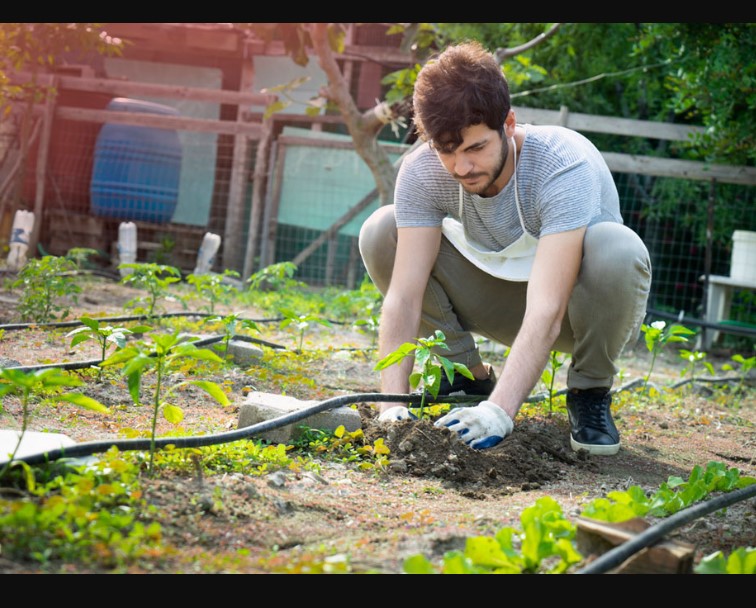Organic gardening is a beacon of hope in sustainable living and environmentally conscious practices, offering a harmonious blend of nature’s wisdom and human ingenuity. Embracing organic gardening techniques nurtures the soil, promotes biodiversity, and yields bountiful harvests of nutritious produce. In this comprehensive guide, we delve into the intricacies of organic gardening, exploring time-tested methods and innovative approaches to cultivate thriving gardens while fostering ecological balance.
Understanding the Essence of Organic Gardening
At the heart of organic gardening lies a profound respect for the interconnectedness of all living beings and the ecosystems they inhabit. Unlike conventional farming methods reliant on synthetic fertilizers and pesticides, organic gardening prioritizes natural processes and sustainable practices to nurture plants and soil health. By eschewing chemical inputs and embracing holistic approaches, organic gardeners strive to create self-sustaining microcosms teeming with life.
Chapter 2: Building Healthy Soil: The Foundation of Organic Gardening
Central to the success of any organic garden is the cultivation of healthy, nutrient-rich soil. Instead of relying on artificial fertilizers that deplete soil fertility over time, organic gardeners employ various techniques to enhance soil structure and vitality. Composting, cover cropping, and crop rotation are among the cornerstone practices that enrich the soil with organic matter, beneficial microorganisms, and essential nutrients, laying the groundwork for vibrant plant growth and abundant harvests.
Nurturing Plant Health Naturally
In organic gardening, the emphasis is on preventing rather than treating plant diseases and pests. By fostering a balanced ecosystem and promoting plant resilience, organic gardeners can minimize the need for chemical interventions. Companion planting, polyculture, and biological pest control methods, such as introducing beneficial insects and using organic pesticides derived from plant extracts, are integral strategies to maintain plant health and ward off common pests and diseases.
Water Wisdom: Efficient Irrigation in Organic Gardening
Water conservation is a cornerstone principle of organic gardening, especially in drought-prone regions and water scarcity. By using mulching, drip irrigation systems, and rainwater harvesting techniques, organic gardeners can optimize water efficiency and minimize wastage while ensuring adequate hydration for their plants. By harnessing nature’s resources judiciously, organic gardeners can cultivate lush, thriving gardens without placing undue strain on freshwater supplies.
Maximizing Yield and Flavor with Organic Gardening Techniques
Contrary to the misconception that organic gardening yields inferior results, organic agriculture practitioners often enjoy superior flavor and nutritional content in their produce. By prioritizing soil health, biodiversity, and sustainable practices, organic gardeners can unlock the full potential of their crops, resulting in fruits and vegetables bursting with flavor and vitality. From heirloom varieties to heritage breeds, organic gardening offers a cornucopia of culinary delights that celebrate the diversity of nature’s bounty.
Embracing Permaculture Principles for Sustainable Gardening
At the intersection of ecology and design, permaculture offers a holistic framework for creating regenerative landscapes harmonizing with nature’s patterns and cycles. By integrating organic gardening techniques with permaculture principles such as observation, diversity, and resilience, gardeners can create self-sustaining ecosystems that yield abundant harvests while enhancing biodiversity and ecological resilience. From food forests to keyhole gardens, permaculture-inspired designs offer innovative solutions for cultivating productive and resilient landscapes.
Conclusion:
In a world of environmental challenges and food insecurity, organic gardening emerges as a beacon of hope, offering a pathway to sustainable living and ecological stewardship. By embracing organic gardening techniques rooted in respect for nature and a commitment to holistic health, individuals can cultivate thriving gardens that nourish body, mind, and soul while fostering harmony with the natural world. As stewards of the earth, let us cultivate green spaces that sustain us and enrich the web of life for generations to come.

